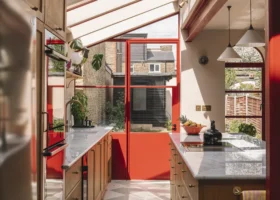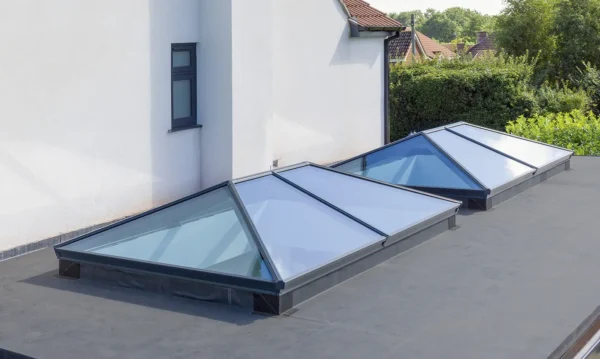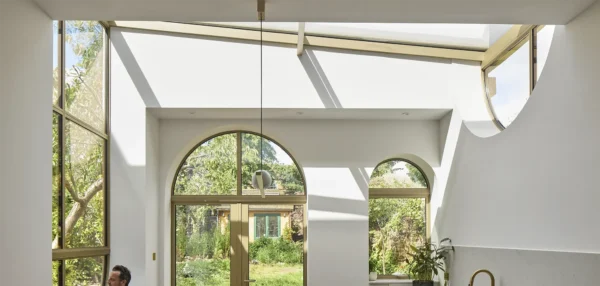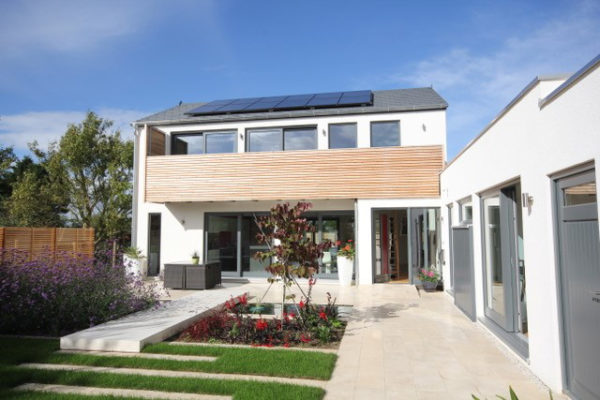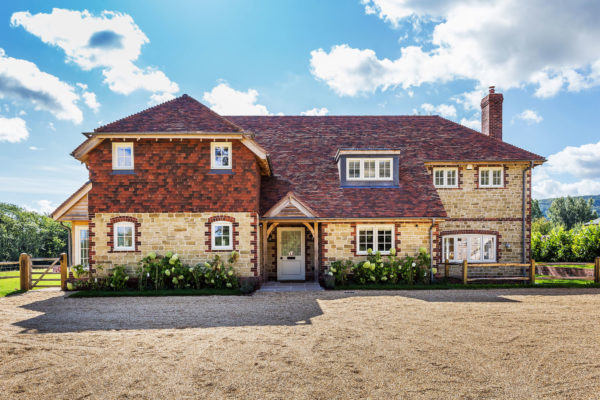Self Build Mortgages Explained
If, like many self builders, you’re not fortunate enough to have cash in the bank to pay for your build – or another property you could raise money on or sell to pay off a short-term bridging loan – then you’ll need to consider arranging a self build mortgage.
Why do I need a specialist self build mortgage?
If you’re buying or already own a site that you’re going to build on, it’s unlikely that the plot itself will be worth enough to secure the whole amount you need to borrow to finance your project. Instead, the lender will release money to you in stages as you progress your build.
It’s really important when choosing a self build mortgage to understand when you’ll receive money from your lender and how the amount you’ll get at each stage is worked out. Getting the money you need at the right time can make the difference between finishing your build on time or encountering cashflow problems that cause delays, stress and even add more costs.
There are a number of different types of self build mortgage available. Which one is most suitable for you will be affected by a number of factors. Considerations include whether you already own your plot or need to borrow to buy it; the amount of cash of your own you have available to put into the mix; and the kind of project you are undertaking.
For instance, if you’re planning to build your home using an offsite-manufactured system like timber frame, there will be more to pay for early in the construction phase. So, you need to make sure your lender will give you the money when you need it.
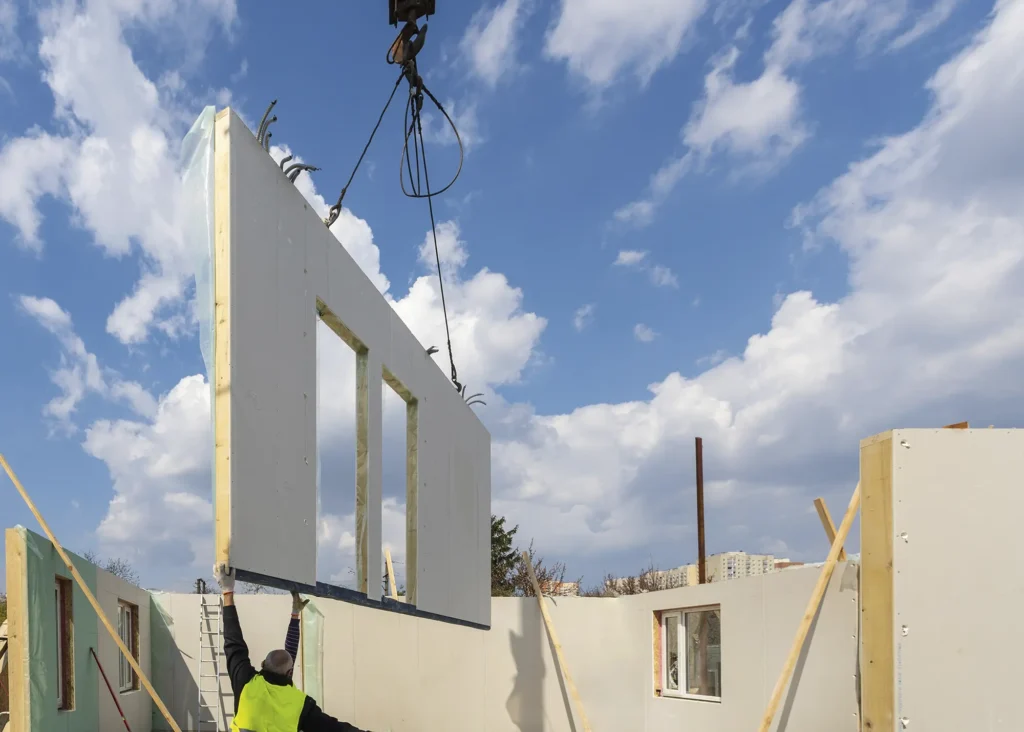
If you’re using an offsite construction method, you’ll need access to a bigger tranche of funds early on in the build phase to enable manufacture and installation. Photo: iSTOCK.COM/brizmaker
Who offers self build finance?
Finding the right mortgage can seem complex but it is crucial to the success of your project, so don’t underestimate the value of spending time finding a good broker. Most mortgage advisers rarely, if ever, deal with bespoke home builds.
So, it’s important to look for an established specialist self build firm with lots of experience in the sector and who will stick with you until you’ve finished your project. Their knowledge, support and relationships with lenders will be invaluable if things change later on and you need to tweak your finance.
Because of the complexities involved and the need to be able to look at every case individually, self build mortgages are pretty much exclusively offered by regional building societies rather than banks.
Some self builders might consider using a bridging loan to finance their projects. However, these command higher interest rates and fees, plus lending rules mean that a bridging loan would have to be repaid within a year. So, unless you have a cast-iron plan to repay the loan quickly, this can be a risky option with extra fees if you don’t pay the money back on time.
Find out more about buildstore
What types of self build mortgage are available?
1. Valuation-based
This approach relies on a valuation of the site to decide how much can be released each time you ask to draw down some more money; usually between 60% and 80% of the valuer’s assessment of what the plot is worth at the relevant stage.
This can create uncertainty, as you don’t know exactly how much you’ll be able to draw down until the assessment is done, and the work you’ve completed and money you’ve spent won’t always be reflected in the valuer’s calculation. So, unless you have plenty of cash of your own available in reserve, there’s a risk you may not have enough to cover contractors’ costs or materials you need to pay for, which could bring your build to a standstill.
2. Cost-based
With this type of self build mortgage, the amount the lender releases to you at each stage is directly linked to the cost of that phase of work. There are no valuations when you request more money. Instead, all releases are agreed during your mortgage application, which means there’s no risk of getting less than you expect.
Having a self build mortgage where the stage releases are directly linked to the cost of each element of work can give you huge peace of mind, knowing you will have the money to pay your bills at the right time and can get on with the next part of your build. At specialist broker BuildStore, we have cost-based mortgages which can give you up to 95% of your project costs – meaning you may be able to create your bespoke home with a deposit of just 5% of your land and build costs.
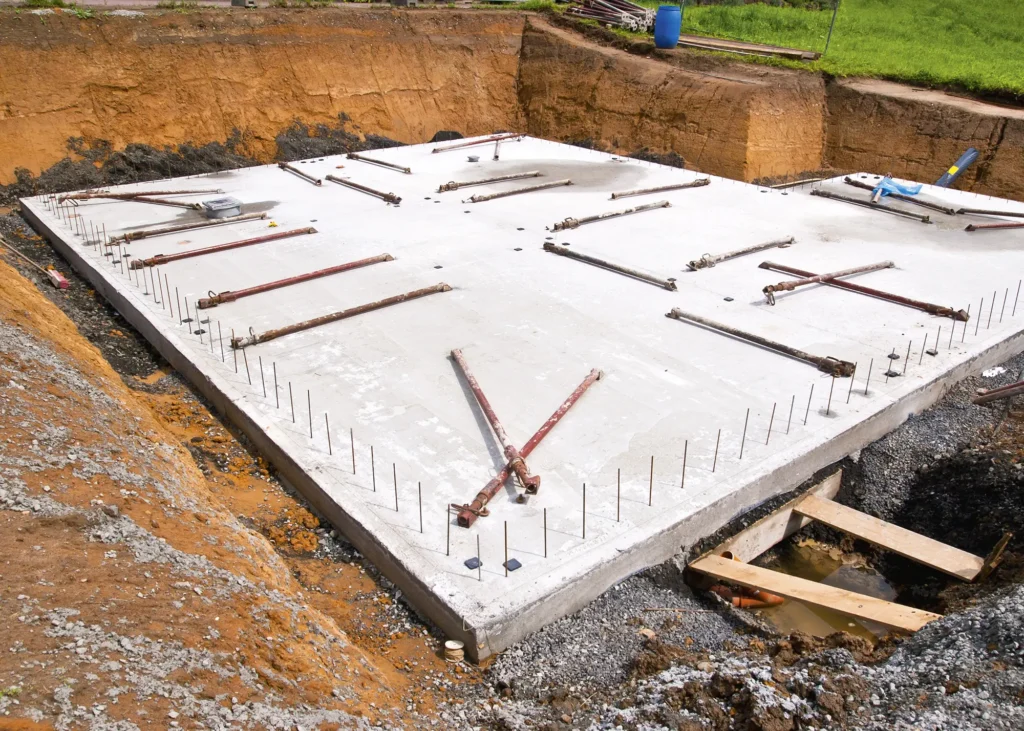
Getting out of the ground is often the most uncertain part of a self build project, even if you’ve commissioned soil surveys, so it pays to set a healthy contingency for this phase. Photo: iSTOCK.COM/WICKI58
When will the payments be released?
Arrears stage payment mortgages give you money when you have completed agreed stages of work. This may suit you if you already own your plot or property and can draw down some money based on the value, or if you have plenty of cash of your own and you’re building using brick and block where the construction costs are more evenly spread through your project.
If you have less cash of your own to call on, you need a mortgage to fund the purchase of the plot or renovation/conversion project, or if your project will require a large up-front payment (perhaps to pay for a timber frame before it is even delivered to your site), then you should look at an advance stage payment mortgage.
Advance mortgages give you funds to cover each stage of your project before you start the relevant phase, and they are cost-based (so there’s no uncertainty over valuations). If you are building with a timber frame, this means you could get up to 95% of the cost of your frame before it has been installed on site.
How much interest will I pay?
Interest rates on self build mortgages are higher than for a normal mortgage. However, you only pay for the money you’ve already drawn down. Plus, most lenders will allow you just to pay the interest while you’re building, keeping monthly costs down and reducing the impact of the higher rate. As soon as you’ve finished your project, many lenders will let you change to a lower rate standard mortgage with them and waive any early repayment charges on the original self build deal.
QUICK GUIDE Benefits of cost-based mortgagesFor many self builders, the advantages of cost-based lending are significant, as it provides solutions to so many of the traditional challenges of financing a bespoke home project, incuding:
|
Applying for a self build mortgage
Once your broker has identified the right deal for you and you’re ready to apply, the lender will require information about your circumstances to work out how much they can lend you. This will include details of your income and spending, as well as how much you have outstanding on loans and other credit.
As a rough guide, most providers will consider lending around four-and-a-half times your yearly income before tax. You also need to show that the monthly mortgage payments will be affordable. The amount you can borrow may be less if you plan to arrange the mortgage over a shorter term – perhaps limited by your retirement age – or you have a lot of credit or above-average spending habits.
It’s a good idea to think about whether you can repay loans or credit cards and to reduce your spending habits over the three months before you apply for a mortgage, as this will demonstrate to a lender that you can manage your spending to afford a larger mortgage. To make a mortgage application you’ll need:
- Your plot details, including a location plan.
- A professional site plan, drawings and specification.
- Planning permission. Many lenders will accept outline planning consent if you’re applying for a mortgage to buy the plot and build a property on it. If you already own your plot, you will need detailed planning permission before you apply.
- Cost estimates for your build. Having a realistic budget is vital. Your project manager, architect or quantity surveyor might prepare these for you, or a specialist mortgage adviser like BuildStore will offer an in-house costings service.
- Evidence of your income. This is usually up to three months’ payslips showing income and spending and your latest P60 if you are employed, or up to three years’ tax returns or accounts and associated documents if you are self-employed.
- Evidence of your spending – usually up to three months’ bank statements showing your income, living costs and general outgoings.
- Proof of any funds you’re putting towards the cost of your project to cover the difference between the total costs and the mortgage you are looking for.

With cost-based mortgages, stage payments are guaranteed – so you know you’ll have the money you’re expecting to pay trades and suppliers. Photo: iSTOCK.COM/DEMAERR
How do I access the money?
Once your mortgage has been agreed and your solicitor has done the legal work, they’ll ask the lender to release the first agreed payment. As you progress with the work on site and you want more funds to be released, if you’re using a broker that specialises in self build, then they’ll deal with the lender to get the money to you. Otherwise, you will need to liaise with the lender yourself. So, it’s worth asking your broker right at the start whether or not they will undertake this element for you.
You’ll usually need to provide a copy of an interim warranty or architect’s certificate to demonstrate that the work done so far has been signed off. If you’ve chosen a valuation-based mortgage, the lender will want to send their valuer out to your site and report back to agree how much money you can have. If your mortgage is cost-based, a formal valuation won’t be needed so it should be quicker and you can be confident you’ll receive the full amount you’re expecting.
What happens if costs overrun during the build?
Arranging a professionally prepared cost forecast and making sure you’ve set aside a suitable contingency fund (ideally up to 20% of your build budget) will reduce the risk of running out of money due to unforeseen issues or a change of specification. If costs do rise, with a valuation-based mortgage, it might be difficult to get more money released until the surveyor decides the value of your site has increased. If you have a cost-based mortgage that doesn’t need valuations, then a specialist broker may be able to work with you and your lender to update the build costs and change the agreed release pattern to give you access to more money.
What happens at the end of my project?
Once your build is complete, you’ll need to provide your lender with the final warranty or architect’s certificate. If you’re on an interest-only mortgage, they’ll probably want to switch you to a repayment (capital and interest) mortgage. This is the time to speak to your advisor about the best deal to move onto – whether that’s sticking with your current lender or looking elsewhere.
| Chris Martin is head of product development and lender relationships at BuildStore. He has worked in financial services for over 30 years and has specialised in the self build mortgage sector for well over a decade. Call 0345 223 4888 or visit BuildStore‘s website for more information and to discuss mortgage, insurance and warranty options for your home building project. |
Main image: istock.com/WAND_PRAPAN
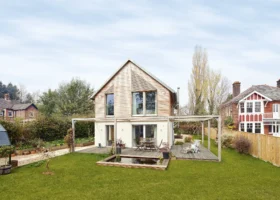


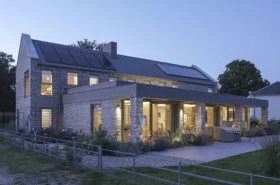

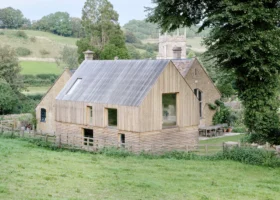
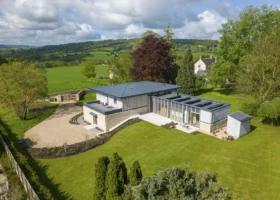
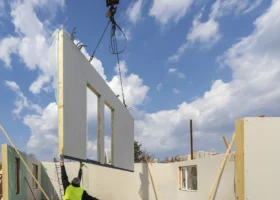
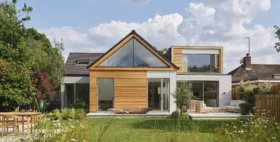
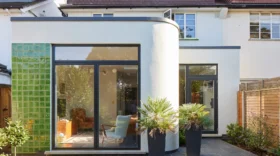
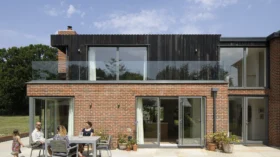

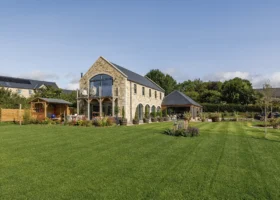

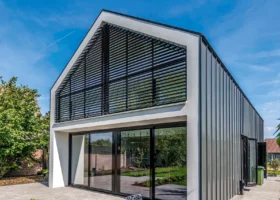


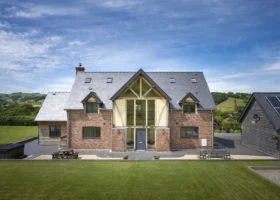
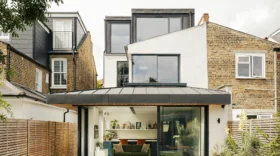
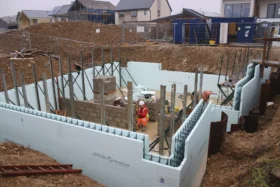
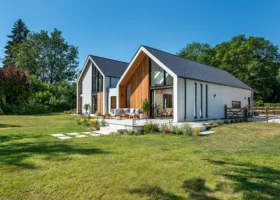
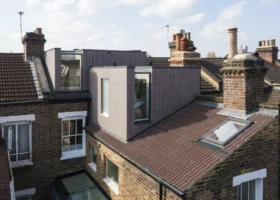
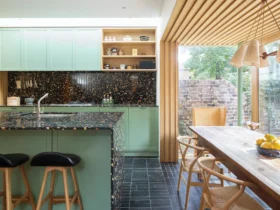



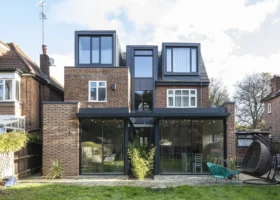
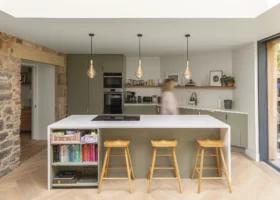
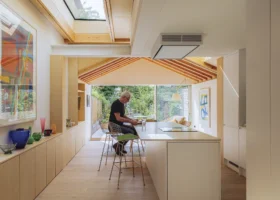
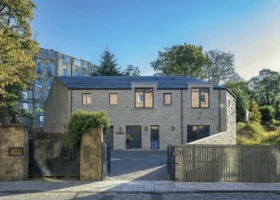
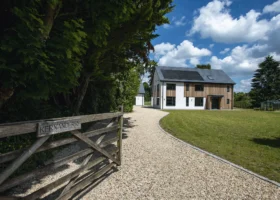
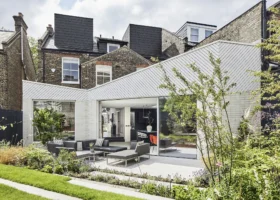
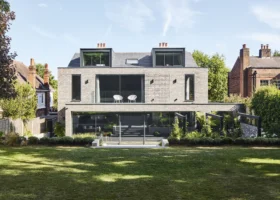
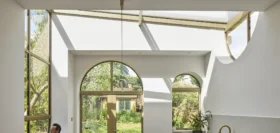
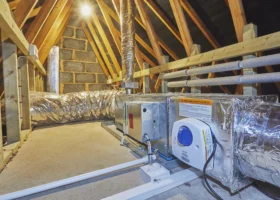
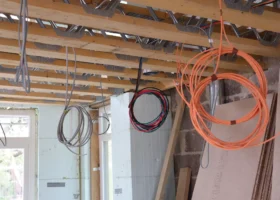

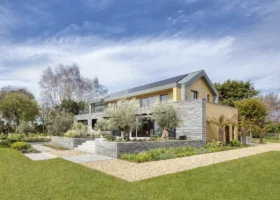
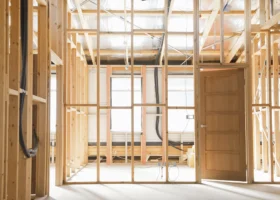
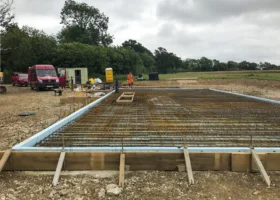
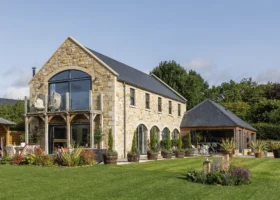

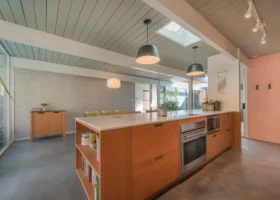


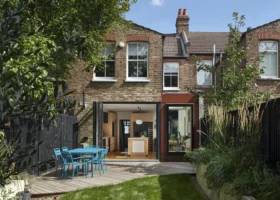
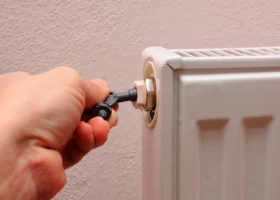

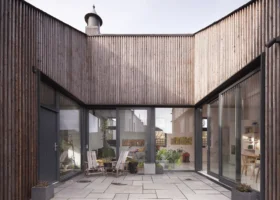
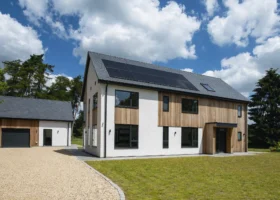
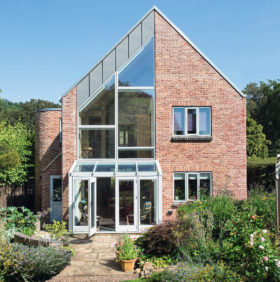
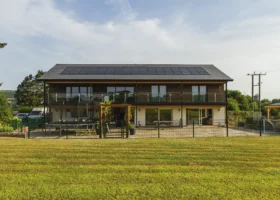
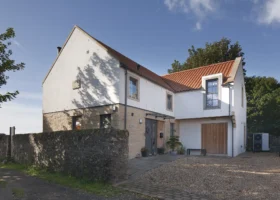


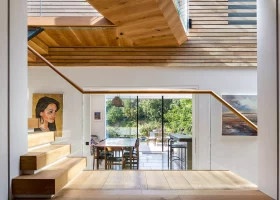
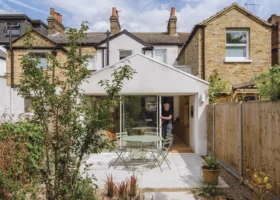
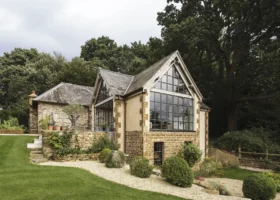
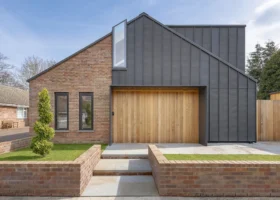
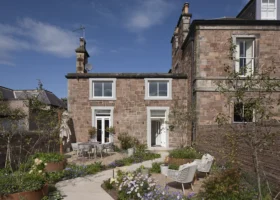
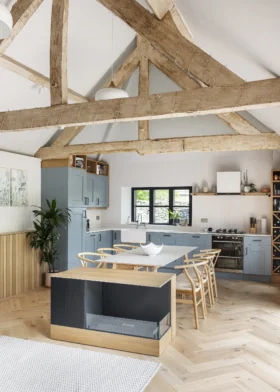
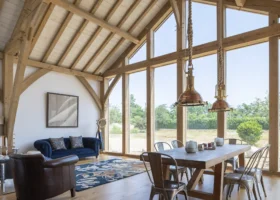








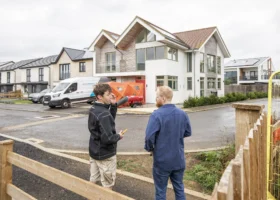








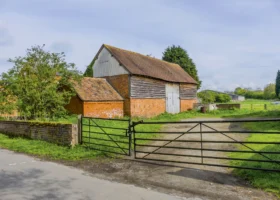
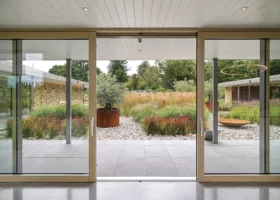


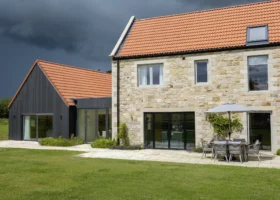
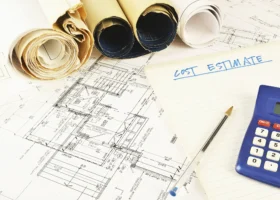

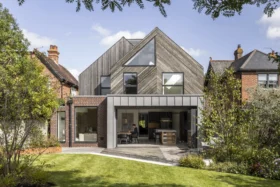





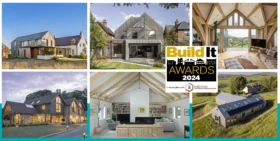



 Login/register to save Article for later
Login/register to save Article for later

